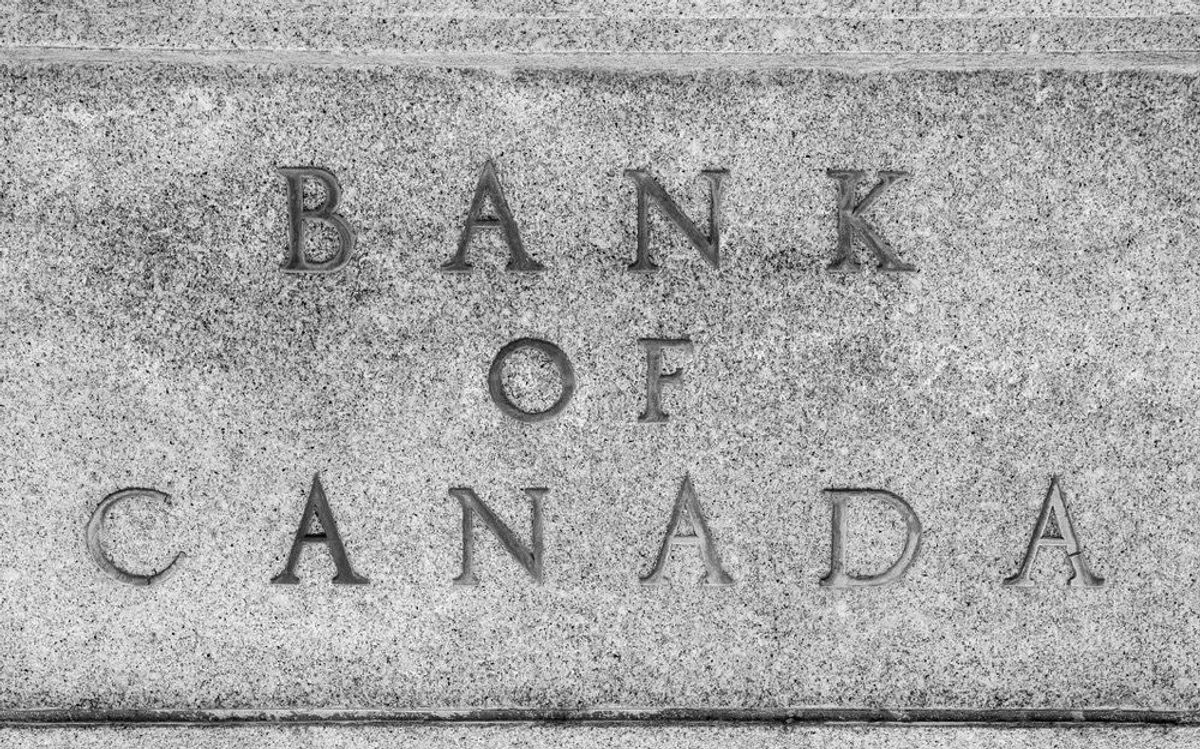The Canadian economy is on track for a moderate recession next year that will see a rise in unemployment rates, a new report from RBC says.
"When you’re at the top of the hill the only way to go is down," the report reads. "Canada’s economic growth has fired on all cylinders following pandemic shutdowns. But a historic labour squeeze, soaring food and energy prices, and rising interest rates are now closing in. Those pressures will likely push the economy into a moderate contraction in 2023."
The Bank of Canada has been hiking rates in an attempt to fight against inflation, which, in Canada, is largely thanks to energy and agriculture prices skyrocketing as the Russia-Ukraine war continues on. This strategy has been advised against by some economic leaders, with Capital Economics’ Senior Economist Stephen Brown recently putting out a report that warned Canada was risking a major recession by aggressively raising interest rates. Although the RBC report agrees that these higher rates will push the Canadian economy towards a recession, it says that "the Bank of Canada now has little choice but to act."
Canada has seen unemployment levels fall below pre-pandemic levels but companies are currently struggling to find the workers they need to expand production. In fact, as of June, there was a 70% increase in the number of job openings compared to before the pandemic. Even without rate hikes, labour shortages are preventing economic expansion on their own, the report says. But once the expected recession plays out next year, the unemployment rate will likely rise 1.5%.
"These job losses will come at a time when Canadians are already grappling with higher prices and debt servicing costs (factors that have hit lower income households the hardest)," the report reads. "Still, by historical standards, we expect the slowdown to be modest. Indeed, a 6.6% unemployment rate would still be more than 2 percentage points below the 8.7% peak in the 2008/09 recession."
But getting inflation under control is a must, the report says, cautioning that it is already starting to "creep into longer-run business and consumer expectations." These expectations can become self-fulfilling, prompting businesses to pass on the cost increases, leading consumers to become more willing to pay for them and, in turn, demanding higher wages. A recent report from the Bank for International Settlements similarly warned that countries around the world may be approaching a tipping point where sky-high inflation rates are entrenched in their economies.
The next Bank of Canada rate announcement is planned for July 13, and many industry leaders, including the authors of the RBC report, are anticipating a .75% hike. This is because Canada is expected to follow suit with the U.S. Federal Reserve, which announced a 75 basis point hike in June.
"The U.S. Fed and the BoC are expected to lift rates to 3.5% and 3.25% respectively, by the end of 2022," the report says. "That’s high enough to significantly restrict growth, particularly in Canada, where household debt is very high."
These debt levels are largely within lower income groups, with higher income households having ramped up their savings since the onset of the pandemic. This has left lower income households more vulnerable to rising rates and prices. And with home prices continuing to fall -- with RBC predicting a 10% decline over the next year, subtracting over $800 billion from household net worth -- these households will be hit even harder.
The hope on the horizon is that the anti-inflation measures will likely be short-lived, the report says. Shipping costs have already declined, demand for goods -- which was spurred supply chain issues -- is starting to wane, and wheat prices that surged during Russia's invasion of Ukraine have reversed.
"Prices are still rising too fast and inflation won’t slow sustainably until demand falls," the report says. "But once that happens, central banks will ease interest rates again.... A 6.6% unemployment rate in Canada next year wouldn’t be far above long-run ‘full-employment’ levels. We don’t think it’ll take long to unwind that weakness in 2024 and beyond."





















